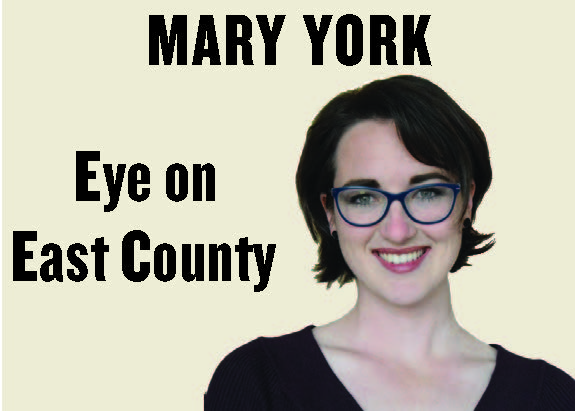My mom was the kind of mother who would buy extra bread at the store so we could feed the ducks on the way home. She was the kind of woman who brought us to the library every week to pick up dozens of books that would fill hours of our imaginations’ wandering at home. She was the kind of woman who would take my six siblings and me to the beach every day of the summer because she knew sand was good for our souls and sunshine made us sleepy enough to go to bed early – loving and clever, my mom.
My mom was the kind of mother who brought us to the polls with her.
My mom was the kind of mother who would buy extra bread at the store so we could feed the ducks on the way home. She was the kind of woman who brought us to the library every week to pick up dozens of books that would fill hours of our imaginations’ wandering at home. She was the kind of woman who would take my six siblings and me to the beach every day of the summer because she knew sand was good for our souls and sunshine made us sleepy enough to go to bed early – loving and clever, my mom.
My mom was the kind of mother who brought us to the polls with her.
I think that was important. I think watching my mom use her constitutional right to vote instilled in us very early that being an American comes with certain responsibilities. My mom would not skip voting any more than she would skip buying milk for the family each week – and she would usually end up doing the one on the way to doing the other.
She did not make a huge deal out of voting – though we did make a big deal out of the stickers, and I think that is only fair.
But she was faithful in filling out her voter’s guide, because being informed before going to the polls is important.
All year long, in fact, we watched her scan the paper for news of the world – this was back before the internet; now she reads the news from her laptop and sends her children links to articles she finds of particular importance.
We would listen to her and my dad talk politics at the table – it would not be long before my siblings and I would be joining the conversation.
If you wanted to talk at the dinner table, you had to be able to keep up, so we all became informed citizens pretty quickly.
I was definitely a Rush Baby. One of my earliest memories is of my mom cooking dinner while I sat at the dining room table finishing math homework – something with basic addition problems and pictures of octopuses counting their legs. Between the wafting aroma of garlic and tomato sauce, Rush Limbaugh’s exuberant voice tickled my ears.
Back then, I was never totally sure what he was talking about – this was in my elementary school days – but he made it sound like it mattered a lot. And when mom would talk at the radio, shaking her head in agitation or laughing along with something being said, I could tell she cared, too.
My mom and I do not always agree on politics these days.
We did not vote for the same person in the presidential election, but we both came home with stickers. And, ultimately, that is the most important thing. It is important that we both participated, that we cared enough to take time out of our day to vote, and time out of our lives, daily, to invest in the national and local conversations about our government and communities. And then, at the end of it all, we were able to set our differences aside and sit peaceably at the dinner table.
My parents have modeled democracy for me from day one. A citizen should be informed, should be diligent, should be gracious in conversation, should be resolute in principle.
Our communities need this.
Young people are so much more polarized than the generations before them. Their idea of politics is a ten-second soundbite from Facebook. Their tolerance for people with differing opinions lasts only as long as it takes for them to feel ‘triggered.’ And their dedication to the cause can be reflected in their voter turnout, which is the lowest in any age group with only 46 percent of millennials coming out to the booths in 2016, comprising just 19 percent of the electorate.
Despite their political force on social media and their obvious passion for change, the workings of the democracy – the nitty-gritty cogs that make it work, like researching candidates and going out to punch a hole in a ballot – have been lost on them.
But those things can be learned.
Our communities need to be a louder example of a modest democracy. We need to model respect when we engage in political discussions, keeping the vitriol and the distaste from seeping into what we say and how we say it, because the younger generation has picked up the bad habit, and it has not been a friend of progress.
We need to be diligent in our own pursuit of the truth, in keeping our elected officials accountable.
We need to lead by example.
We need to be bringing our kids with us to the polls.













